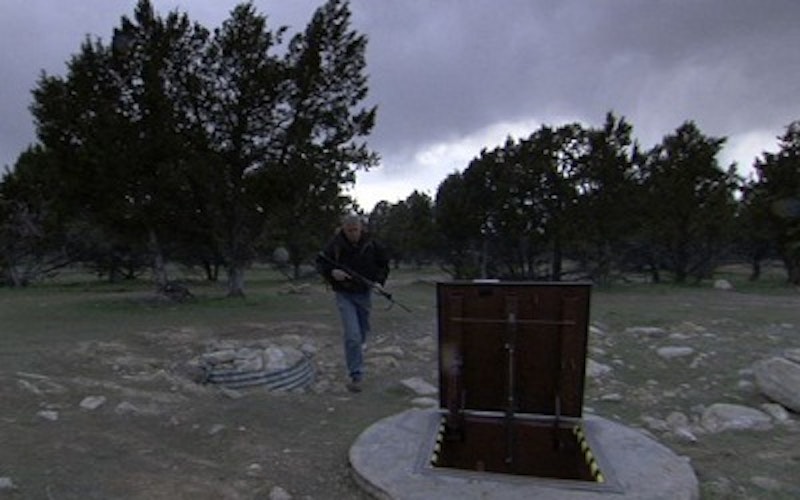
TV
Doomsday Preppers and virtue at the end of the world
I have to admit, it was not virtue that brought me to start watching Doomsday Preppers, which recently wrapped up its first season on the National Geographic Channel. More like morbid curiosity.
After watching my first episode, I found myself yelling at the television both “You’re crazy! That will never happen!” and “You’re preparing for your preposterous doomsday scenario all wrong!” This double reaction intensified even more when a Southern man’s pastor prayed over his food storage and extensive arsenal. He was preparing for civil unrest caused by hyper-inflation. I felt a real dissonance between the presence of a minister and a man with dozens of guns and Molotov cocktails.
I was surprised that so many people in the Bible Belt had a perspective on a potential apocalypse so uninformed by their faith. As Neil Genzlinger wrote in New York Times, "whatever their religious beliefs might be, something Preppers doesn’t generally explore, most of them put their real faith in firearms." It’s hard to say if this is the truth of these people’s experience or the way the show is framed, but I was stunned at how little religion comes up at all, with the exception of the pastoral prayer I mentioned.
The absence of religion that troubled me most about many of the people featured on this show, though, was the lack of generosity toward others.
I guess I shouldn’t be surprised to not hear about the kind of apocalypse traditionally discussed in churches. People who believe the rapture is near don’t prepare the kind of bunkers this show explores with great detail. They often prepare in the opposite way: quitting work and reducing their belongings. Perhaps they wouldn’t make as compelling of television as the folks Preppers profiles. They certainly wouldn’t appeal to advertisers in the same way. Beyond that, preparing one’s heart for Christ’s return is an exceptionally difficult process to film.
The absence of religion that troubled me most about many of the people featured on this show, though, was the lack of generosity toward others. The Times' Genzlinger believes that what these people really want is “a license to open fire.” To the show’s credit, it has featured exceptions to this selfish, suspicious ethos. One woman preparing for a pandemic flu assembled hundreds of pandemic safety kits and distributed them to her neighbors. This approach was in part self-interested, but also included the knowledge that communities matter and other people matter. The show’s “experts” frequently suggest that preppers get their neighbors involved so they would not have to work alone in their respective scenario (which varies but includes both natural and social disasters).
My objection to so many of these profiled preppers is that they are preparing to fend off their neighbors, not help them. In the event of a real disaster, we’d likely all be better off if we helped each other out instead of being suspicious and selfish. Even if that means somebody else takes advantage, I don’t think the fruit of the spirit expires.
I think it’s better to be hurt by your generosity than to hurt someone else with selfishness, and even more so in an extreme situation. After all, one person gave up everything to save us all in the apocalyptic scenario I know will happen eventually, and that’s a person I really want to imitate.
What Do You Think?
- Have you watched Doomsday Preppers? What do you make of it?
- Do you spend much time thinking about or preparing for end times?
- What place should such concerns have in a Christian's spiritual life?
Topics: TV, Culture At Large, Arts & Leisure, Theology & The Church, Theology